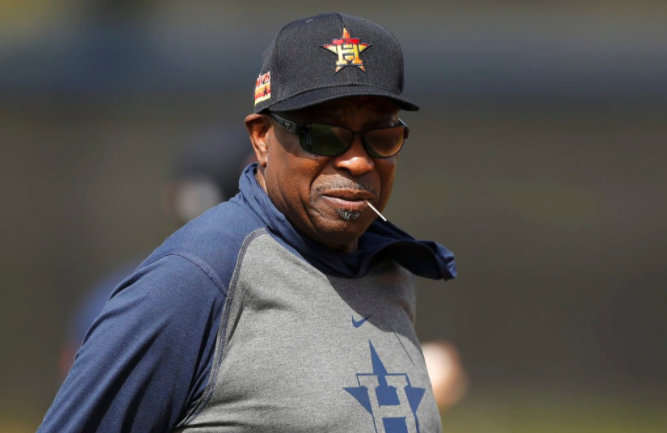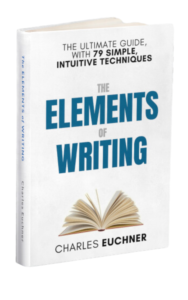Dusty finally won it all.
No one has won more respect or affection in baseball than Dustr-y Baker.
Baker has been a big-time player and manager for as long as I can remember. As a player, he was a reliable power-hitting outfielder who could also steal a base and field well. But he found his life’s purpose as a teacher, coaching and managing for five teams. He was manager of the year for the San Francisco Giants in 1993, 1997, and 2000. He brought all his teams–the Giants, Reds, Cubs, Nationals, and Astros–to the cusp of championships. But he fell short — until finally winning the World Series with the Astros in 2022.
Dusty understands a skill that writers should learn and apply when they work on difficult projects.
Take it easy. Show up every day and do the work, but take it slow. Get in the moment. Get in the flow.
Years ago I talked with Matt Williams for my book The Last Nine Innings. Williams explained how Dusty changed his life.
Early in his career, Willians struggled with the pressure of the big leagues. In his first three seasons, he hit .188, .205, and .202. A shy, sensitive type, he felt overmatched. But his physical skills were as good as anyone’s.
Baker guided Williams as the hitting coach for the Giants. He coaxed the best out of his players by telling them to forget about what they had to do. As Peter Crone says, he didn’t solve problems; he dissolved problems.
Baker brought a boom box to the cage during batting practice and played the role of DJ. When the Giants faced a power pitched like Curt Schilling, Baker played loud, hard-driving music like AC/DC. When the opponent was a finesse pitcher like Greg Maddux, Baker played mellow music from the 70s. Just sway with the music, he said. Forget about everything else. Just get in the right tempo. The skills and reflexes would take care of the rest.
Science supports Baker’s approach. A set of circuits in the front of the brain keep tempo in the brain long after hearing a song. That explains “ear worms,” the inability to get a song out of your mind long after you hear it. That part of the brain, the rostromedial prefrontal cortex, also plays a key role in physical movement. Get ’em in sync, and you improve your chances for success. “The experience of the groove in music is a state where our perceptions and actions are meshed together,” said Petr Janata of the Center for the Mind and Brain at Cal-Davis.
But Baker’s insight went beyond grooving.
To perform any skill well, you need to prepare relentlessly. You need to break down actions into discrete parts and concentrate intently to master them and make them automatic. Then you need to combine these micro-skills together into complete actions: swinging a bat, throwing a ball, turning a corner on a base. The formula is simple: (1) Break it down. (2) Drill, baby, drill. (3) Combine the pieces into a whole. Researchers call this “deliberate practice.” For a great book on the topic, look at Dan Coyle’s The Talent Code (also see my interview with Coyle here).
The challenge occurs when you finally have to perform. When you get up at the plate — or move onto the dance floor, stand in front of a classroom, or sit down to write something — your mind sometimes get overwhelmed: Do this, do that; not this, not that. If you think too much, you will get in your own way.
Williams remembers when number-crunching transformed the game. He melted down, trying to remember everything the stats told him about different pitchers and situations. “I was walking up to the box and simply forgetting what I was there for: see the ball, get a good pitch, and hit it hard,” he said. “I was thinking about whether the first pitch was going to be a curveball and letting my pitch go by. I was not being as aggressive as I know I need to be.”
When the time comes to perform, you need to forget about stats and technique; you need to let loose. Focus on that moment and nothing else. If you master the micro-skills well enough, ahead of time, you should be able to perform well without thinking too much. Afterwards, you can do a post-mortem, looking back to see what went well and what didn’t.
As brain research shows, you cannot pay attention to two things at once. So forget about everything in your life except what is right in front of you.
One. Thing. At. A. Time.
The only way to apply writing skills — or skills in other fields, as Dusty Baker taught Matt Williams and others — is to forget about the skill when you’re trying to use it. Let your muscle memory take over. Focus on the task at hand, not the techniques that you have burned into your brain.
So as a writer, here’s what you do: Just compose your draft, line by line. Then, once you have a draft you want to polish, focus on just one thing at a time.
Congrats, Dusty. You have shown the way for countless others. Enjoy the Champagne.


